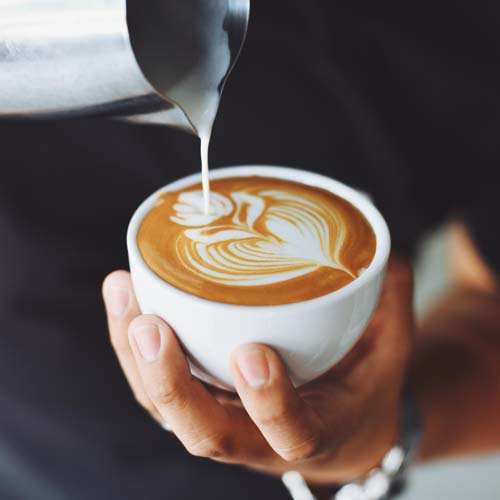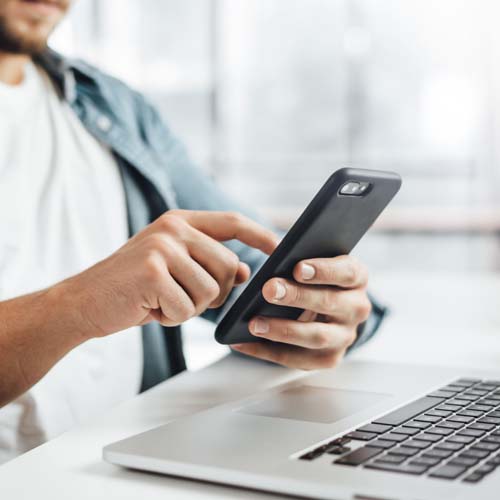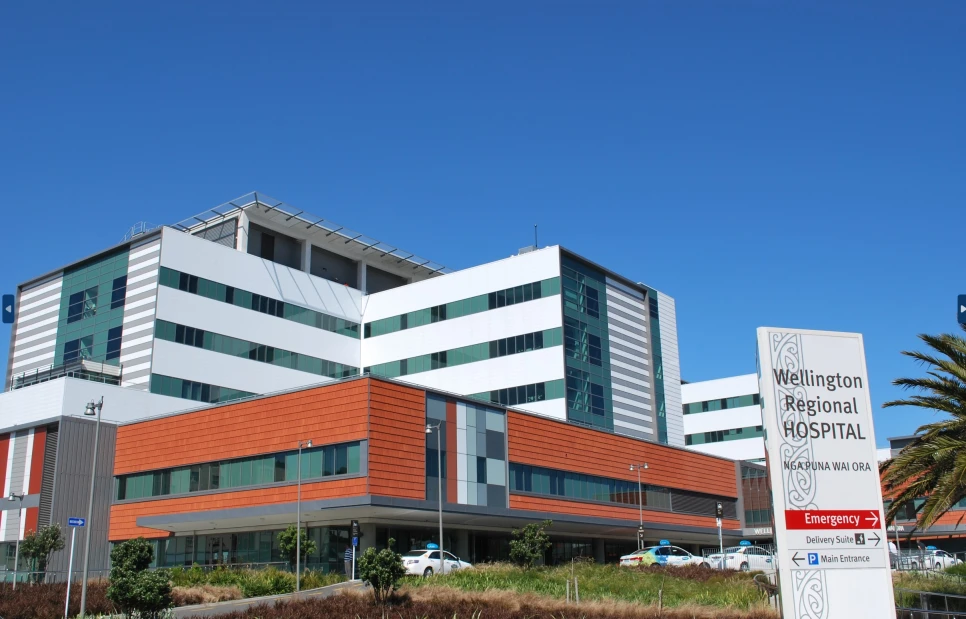On this page
- Emergency department
- After hours and urgent medical centres
- Contact information
- Visiting hours
- How to get to Wellington Regional Hospital
- Parking information
- Wellington Regional Hospital maps
- Wellington Regional Hospital services
- Facilities
- Patient and visitor information
- Your stay in hospital
- Feedback
After hours and urgent medical centres
If your health emergency is not life threatening, but you cannot wait for an appointment with your usual doctor or healthcare provider, go to an after hours or urgent medical centre. They can help you with things like bad cuts, sprains or breaks, minor head injuries, or if you are feeling really sick. You do not need an appointment but might have to wait.
Phone 04 384 4944
Street address:
17 Adelaide Road
Mount Cook
Wellington 6021
Wellington Accident and Urgent Medical Centreexternal link
17 Adelaide Road, Wellington — Google Mapsexternal link
Opening hours: 8am to 9pm every day.
Phone 04 385 8810
Street address:
17 Adelaide Road
Mount Cook
Wellington 6021
17 Adelaide Road, Wellington — Google Mapsexternal link
Opening hours:
- 9am to 11pm, Monday to Friday
- 8am to 11pm, weekends and public holidays.
Contact information
For general enquiries:
- phone: 04 385 5999
Postal address:
Wellington Regional Hospital
Private Bag 7902
Wellington 6242
Visiting hours
Wellington Regional Hospital visiting hours are 10am to 1pm and 3pm to 8pm, 7 days a week.
Other visiting time information
- Visits to the following areas are by negotiation with the team leader:
- post anaesthetic care unit (PACU)
- intensive care unit (ICU)
- emergency department (ED)
- short stay unit
- neonatal intensive care unit (NICU)
- delivery suite.
- Parents and guardians may visit the children's hospital at any time.
- Talk to the team leader before visiting someone receiving mental health care.
How to get to Wellington Regional Hospital
The main entrance to the hospital is on Riddiford Street.
Wellington Regional Hospital
49 Riddiford Street
Newtown
Wellington 6021
Bus
These bus routes stop at Wellington Regional Hospital:
- 1 — Johnsonville West/Churton Park/Grenada Village to Island Bay
- 3 — Wellington Station to Lyall Bay/Rongotai
- 4 — Mairangi to Strathmore
- 18 — Karori to Miramar
- 23 — Wellington Station to Houghton Bay
- 29 — Wellington Station to Brooklyn.
For timetables and maps, go to the Metlink website.
Hospital shuttles
Shuttles are available between:
- Kenepuru Community Hospital and Wellington Regional Hospital
- Kāpiti Health Centre and Wellington Regional Hospital.
Patients and their caregivers or visitors can use our free shuttle van service to travel between Kenepuru Community Hospital and Wellington Regional Hospital.
Booking
You need to book a seat on this service — preferably at least one hour before you intend to travel. This can be done by contacting the Wellington transport office:
- phone 04 806 2708
- email shuttle.booking@ccdhb.org.nz
Office hours are 7:30am to 4:30pm, Monday to Friday.
Timetable
The service runs every hour on weekdays, with the first shuttles departing simultaneously from both sites at 7am. Departures continue each hour on the hour, with the final departure at 6pm.
The shuttle does not operate on weekends or public holidays and reduced schedules operate over the Christmas-New Year peak holiday period.
Travel time is usually around 30 minutes, but can be up to 45 minutes as collections and deliveries are often made during the run.
We suggest that patients using the shuttle to travel to appointments notify clinic staff so that appointments can be scheduled for 15 minutes before the hour, or on the hour.
Departure points
- Kenepuru Community Hospital — outside the main public entrance to the Accident and Medical Clinic.
- Wellington Regional Hospital — outside the main entrance door.
Accessibility
Unfortunately the shuttle vans are not wheelchair accessible. You will need to make alternative arrangements. If an accessible vehicle is required, let us know when you make your booking and we will try to arrange for this. Book at least 24 hours in advance.
For more information:
- phone 04 806 2708
- email shuttle.booking@ccdhb.org.nz
A Safe Kapiti (ASK) runs a health shuttle from Monday to Thursday. Drivers have had full official training and first aid training.
The service cannot accommodate a wheelchair so it is for people who:
- are mobile and independent, or
- only need some assistance from the driver to get in and out of the van.
Passengers are welcome to bring a support person with them.
The shuttle picks up people and drops them back home between Waikanae and Paekākāriki. People in Ōtaki can be picked up at the bus stop at Ngaio Road in Waikanae.
Booking
To book a seat on the Kapiti health shuttle, freephone 0800 502 066 (extension 0).
You can leave a voicemail message.
Bookings must be made 24 hours in advance — but if you require the shuttle on Monday it will need to be booked on the Thursday beforehand.
Appointment times
Patients are asked to make their appointments between 10am and 11:30am at Wellington Regional Hospital.
Donations
The shuttle runs on donations. A suggested donation is $20 return trip. A receipt will be provided if required.
Cancer Society service
People who need occasional help with transport to cancer treatment can request the volunteer driving service. Talk to the staff at the Blood and Cancer Centre for more information.
Taxi drop-off and pick up locations
There are taxi parks outside the hospital's main entrance.
National Travel Assistance
The National Travel Assistance Scheme helps people who need to travel long distances or travel frequently for health appointments.
Parking information
The main underground car park is accessible from the Riddiford Street entrance. There are 310 car parks.
Additional parking is available on Mein Street. Spaces available for public use are are marked by green lines.
For the eye clinic, children's hospital, paediatric outpatients and the centre for endocrine, diabetes and obesity research there are public parking spaces in the C zone parking at the top of Hospital Road behind the Grace Neill Block. Spaces available for public use are are marked by green lines.
There is also limited parking that can be accessed via Hospital Road, off Adelaide Road.
There are public car parks on the second level of the Woolworths car park. These are marked in blue.
Mobility parking
There are accessible parking spaces throughout the campus:
- covered parking in the main underground car park, near the orange lifts that lead to the atrium
- uncovered parking at the back of the hospital, outside level 5 of the Grace Neill Block — these are the closest to the eye clinic
- uncovered parking at the back of the hospital, outside the children's hospital and Ward Support Block.
- uncovered parking off Mein Street, outside the orthopaedic clinic.
Wellington Regional Hospital map with parking informationPDF666 KB
Parking fees
Parking is free for the first 20 minutes. After this, fees apply up to a maximum of $10 on weekdays and $6 on weekends.
Car parking for cancer patients
The Cancer Society allows patients to park in their car park at 52 Riddiford Street, across the road from the hospital.
Present your appointment schedule to the Cancer Society reception and they will give you a chit to put on your windscreen.
Facilities
Cafés
Wellington Regional Hospital has 2 cafés and a coffee bar.
Opening hours
Mojo — main atrium:
- 7am to 6pm, weekdays
- 8am to 3pm, weekends and public holidays.
Mojo — Clinical Services Block:
- 7am to 4pm, weekdays
- closed weekends and public holidays.
Vibe Café — Ward Support Block:
- 7am to 7pm, weekdays
- 8.30am to 6pm, weekends.

Wi-Fi
For patients staying overnight, free Wi-Fi is available. Connect to the 'DHBPatientWiFi' network and follow the instructions.
For outpatients, Wi-Fi is available for $5 for 8 consecutive hours.
It is available in:
- main building
- Grace Neill Block
- children's hospital
- emergency department.
Purchase Wi-Fi access at the gift shop in the main atrium.

Gift shop
The Wellington Regional Hospital Gift Shop is in the main atrium.
The shop sells a wide range of items including:
- newspapers, magazines and books
- flowers, gifts and soft toys
- greeting or get well cards and stamps
- Wi-Fi tokens, phone and Snapper card top-ups
- snacks and water
- basic pharmaceuticals and toiletries
- dry cleaning.
Opening hours
- 8:30am to 4pm, weekdays
- 9am to 3pm, weekends
You can also place orders online or by phone for delivery to patients.
Shop — Wellington Regional Hospital Gift Shopexternal link
- phone: 04 389 5610
The gift shop is run by the hospital's charity, Wellington Hospitals Foundation.
Wellington Hospitals Foundationexternal link

ATM
There is an ATM opposite the gift shop in the main atrium.
Some banks have a branch on Riddiford Street.
New Zealand Post box
There is a New Zealand Post box opposite the gift shop in the main atrium.
A New Zealand Post Shop can be found at:
Ashleigh Court Pharmacy
100 Riddiford Street
Newtown
Whānau rooms
Rooms are available on levels 4, 5, 6 and 7 for all whānau visiting people on the wards. They provide a space for larger gatherings.
Wellington Regional Hospital is part of the Baby-Friendly Hospital Initiative (BFHI) and these rooms also offer a quiet space for nursing mothers.
Patient and visitor information
Margaret Stewart House
Margaret Stewart House provides you with a place to stay if you are from out-of-town and having cancer treatment at Wellington Regional Hospital. The house is located in the hospital grounds.
Priority goes to patients receiving cancer and dialysis treatment.
Phone 04 380 0300
Email msh@cancersoc.org.nz
Margaret Stewart House, Wellington — Cancer Society NZexternal link
Te Whare Whānau o Te Pehi Parata
Temporary accommodation is available for whānau from outside the Wellington region who are supporting an inpatient. Accommodation is limited and pre-booking is advised. There is 1 room per whānau for 3 or 4 people, depending on availability. Tamariki must be accompanied by an adult.
To enquire about availability contact Whānau Care Services between 8am and 6pm Monday to Friday.
Phone 0800 999 442
Email wcs@ccdhb.org.nz
Ronald McDonald House
Ronald McDonald House provides free accommodation to whānau with seriously ill children aged 21 and under while they receive treatment in Wellington Regional Hospital.
Priority is given to those who live more than 80km away from Wellington or those who live in the South Island. Distance limits are waived for whānau with tamariki in ICU.
Phone 04 389 5505
Email info@rmhc.rg.nz
Ronald McDonald House Wellington — Ronald McDonald House Charities New Zealandexternal link
The cultural support area is at the front of the main atrium, on the left just past reception and through the glass doors.
Whānau care services
Whānau care services provide cultural and practical support for Māori patients and their whānau.
We assist by providing:
- whakawhanaungatanga and manaaki
- manaakitanga, practical help and information for you and your whānau
- connection and bridging the gap between you, your whānau and the medical team
- cultural support.
To contact the whānau care services team:
- ask your healthcare provider to make a referral
- email res-whanaucareservice@ccdhb.org.nz
- phone 04 806 0948
- visit us in the Cultural Care Centre on level 2 in the main building.
Disability alerts and health passports give your healthcare providers information about you for your appointment.
Disability alerts
A disability alert adds information about your needs to your electronic patient file. It helps us make sure you can:
- access your appointment
- understand what is happening
- feel safe.
For more information or help with disability alerts:
- email disability@ccdhb.org.nz
My Health Passport
To save you repeating information to your doctor or health and disability services, use My Health Passport. It explains how you want them to communicate with you and help you.
My Health Passport — Health and Disability Commissionerexternal link
Communication graphic cards
NZSL video about communication graphic cards — Vimeoexternal link
These cards are for Deaf and hard of hearing people to use when accessing health services. They are to:
- help you communicate with other people
- make other people aware of different ways to communicate with you.
The cards are the same size as a bank card so that they fit in your wallet. You could also save the image to your phone and show it when you visit.
There are 3 cards that say 'Hello, I'm Deaf' and 3 cards that say 'Hello, I'm hard of hearing' and they have different messages:
- one outlining communication methods
- one asking people to use NZ Video Relay Services
- one asking people to us physical distancing so that face masks can be removed.
Hello, I'm Hard of Hearing cardexternal linkPDF
Hello, I'm Deaf cardexternal linkPDF
Both card – business card sizeexternal linkPDF
Co-production, user experience testing and research
Co-production involves finding patients who can attend a meeting or series of meetings with the Disability team and other staff to develop a new service or way of working. Sometimes we also ask patients to give us feedback through user experience testing. If you would like to be included in co-production or user experience testing, we would love to hear from you.
If you are a researcher with disability expertise, let us know. We like to work with researchers who are familiar with the rights-based approach to disability. We frequently recommend potential researchers to other departments across the region.
To contact us:
- email disability@ccdhb.org.nz
We can book an interpreter to support:
- people who do not speak English or do not speak it with confidence
- people who communicate by sign language
- when translation of written information (to or from English) is required
- some interpreter services are available by telephone.
Let the service or ward know if you want to use an interpreter.
Sign language interpreter
You should use a qualified NZSL interpreter in any situations where you make important decisions. These situations include:
- health consultations
- assessments
- treatments
- discussions about which medicines you should have.
The department you're seeing will book the interpreter.
Health New Zealand | Te Whatu Ora pays for interpreters for hospital appointments.
iSign pays for interpreters for:
- GP (family doctor) appointments
- ultrasound appointments
You can ask for an NZSL interpreter to be at your appointment. We do not recommend using a family member as an interpreter.
You can ask for a particular interpreter to be at your appointment. If the interpreter you want is not available, you can go ahead with the appointment with another interpreter. Otherwise, you can reschedule it for when the interpreter is available.
If you would like to book an interpreter yourself, contact iSign.
Your options if you cannot get an interpreter
Your healthcare provider will work with you to find the best way to communicate with you.
Some options include:
- New Zealand Relay video interpreting serviceexternal link
- delaying the appointment until you can get an interpreter
- using note writing, online videos, gestures, lip reading, or a family member or friend to interpret — these options can be risky, so only use them as a last resort.
NZSL video about coming to hospital
CCDHB NZSL video about coming to hospital — YouTubeexternal link
The Wellington ICU provides tertiary (advanced) intensive care for patients across the lower North and upper South islands. It is the largest Critical Care Unit in Aotearoa New Zealand.
Wellington Intensive Care Unitexternal link
Wellington Regional Hospital is a place where staff, patients, whānau and friends work together to care for sick and injured people. We want a safe and calm environment for everyone. We have zero tolerance to violence, aggression or harassment of any kind towards staff, patients or visitors.
This includes:
- intimidation or threats
- swearing
- shouting
- racial or sexual comments
- physical aggression towards people or property.
Please treat everyone with dignity and respect. We all share the same goal — to care for patients. Please treat all our patients, staff and visitors with respect and dignity.
Please respect our rules. These are required to ensure the best outcome for our patients.
Please talk to us if you are feeling frustrated or stressed. Patients get better faster when we use calm voices and work together as a team. Use our whānau spaces or take a break outside if you are overwhelmed.
We want our place to be a safe place for all. We are all responsible for making our place a safe place for everyone.
Ma tini, ma mano, ka rapa te whai — by joining together we will succeed.
We lend hospital equipment to patients to support their recovery, such as:
- crutches
- wheelchairs
- bathroom chairs.
When we lend any equipment we will provide a date when they are to be returned. This date is agreed with your healthcare provider and is based on the time they estimate you will need it to support your recovery from illness, an accident or surgery.
There is no charge for equipment, or fee if they are returned late.
We appreciate people returning equipment when they no longer need them. This means they are on hand to lend to other patients who need them, and we do not have to spend money buying replacement items, which could spent on providing other health services to our communities.
You do not need to return any personal hospital equipment, such as:
- moon boots
- pressure bandages or strapping
- linen.
You can dispose of these in your rubbish.
If you need your equipment for longer, or cannot return your equipment:
- phone 04 918 6334
- email equipmentreturns@ccdhb.org.nz
Where to return equipment
There is a blue bin just inside the main hospital entrance on the right-hand side.
- Put smaller items such as crutches inside the bin.
- Put larger items beside the bin.
With the exception of standard crutches, equipment is traced through the barcode so there is no need for paperwork to be attached to them or a receipt to be issued.
Ward Support Block
The central equipment pool is on level 3 of the Ward Support Block.
To get to the Ward Support Block:
- from the main entrance, follow the orange line — first seen on the wall, and then the floor
- from the Mein Street entrance, pass the Mojo café and then follow the orange line
- from Hospital Road, go to the last car park area and follow the signs.
The Ward Support Block is closed to the public. You will need to phone 04 918 6334 for someone to let you in, or for a staff member to come out and pick up the equipment.
The Ward Support Block is open 7am to 4:30pm, Monday to Friday. If you are dropping off equipment, please come between 8am and 4pm.
Wellington Regional Hospital campus mapPDF666 KB
To send a message to a patient, phone 04 385 5999
We will need the patient's name and the ward they are in.
Anything you send to a patient should be clearly marked with the patient's name and ward.
Send letters and parcels to:
Wellington Regional Hospital
Private Bag 7902
Wellington 6242
Send flowers to:
Wellington Regional Hospital
49 Riddiford Street
Newtown
Wellington 6021
Flowers are not allowed in:
- intensive care unit (ICU)
- neonatal intensive care unit (NICU)
- ward 7 south.
The hospital and grounds are all smoke and vape free areas. If you are a patient we can help with nicotine replacement therapy.
The chaplaincy department, chapel and Muslim prayer room is at the front of the main atrium, on the left just past reception and through the glass doors.
The chapel and Muslim prayer room are open 24 hours and can be used by all hospital patients, whānau and staff.
If you would like a chaplain to visit, ask a staff member to phone the relevant service.
Spiritual support availability:
- Roman Catholic — 8am to 2pm, Monday to Friday
- Māori — 8am to 12pm, Monday and Tuesday
- all others — 8am to 4:30pm, Monday to Friday.
To speak with a chaplain or Catholic priest after hours phone 04 385 5999
If you want to access a minister from a particular faith not represented within the chaplaincy team, ask a staff member for the list of on-call chaplains, or ask one of the chaplaincy team to contact an appropriate person.
- There is a maximum of 2 adult visitors (over 16 years). You may be accompanied by up to 2 tamariki or rangatahi under 16.
- This applies to all of our wards, units, and campuses — apart from Cancer Ward 5 North where only 1 visitor is permitted at a time.
- Medical masks must be worn by all visitors at all times while on our campuses and are available at our entrances.
- In the case of very sick or special needs patients, longer visiting hours can be arranged with the charge nurse.
- Visiting hours are designed to ensure patients have the opportunity to enjoy the company of whānau and friends while recognising the need to maintain the comfort and safety of all patients.
- Whānau are welcome outside of the regular visiting hours but must talk to a nurse or administrator at ward reception before going to see the patient. This may include whānau participating in doctor's rounds and assisting with activities of daily living.
- Tamariki are very welcome to visit, but young children must be accompanied by an adult at all times.
- When someone is in the intensive care unit (ICU), whānau are welcome to sit with them at any time.
- Occasionally, in shared rooms, the number of people or length of time spent with a patient may be restricted out of consideration to other patients nearby.
- Due to limited space in the day surgery unit, we invite no more than 2 whānau members remain with the patient.
- Visiting hours allow for clinical team assessment and treatment processes to be completed, patient comfort cares and rest periods.
